After three semesters with classes held online, universities in Iran are set to reopen for in-person classes imminently. The decision was met with widespread opposition but Iranian officials have insisted reopenings proceed according to plan.
For now at least, unvaccinated students at many institutions have been told to stay at home. Islamic Azad University, one of the biggest consortiums of colleges and private tuition sites in the world, has been firm: those without a Covid-19 jab cannot enter classrooms or take their final exams.
Ordinarily, if a student is absent for more than three classes, “his name would be removed from the course. But now, because of coronavirus, we wouldn’t do this, and this is the best thing that a university can do for students,” said Javad Olamaei, Islamic Azad University’s Vice President for Science, Engineering and Agriculture.
Despite the concessions, many students are not happy about returning for in-person classes at all. Many expected their fourth semester would also be remote, and had chosen their modules on that basis.
Ava, a computer science student at Qazvin Azad University who lives in Gilan’s provincial capital of Rasht, told IranWire: “They should have announced the decision to hold in-person classes and exams in the summer. I chose my courses in September, and because I was confident the classes would be held remotely, I chose my hours for the week in a certain way. Had I known they’d be in person I would have chosen them so that they would have all fitted into two or three days a week. Then, there would have been no reason for me to stay in Qazvin the whole week, and I could have come back home to Rasht.”
Ava has had two doses of Covid-19 vaccine. She will now have to spend a considerable sum to either rent a place in Qazvin or travel between the two cities.
Fake Vaccination Cards a Temptation
One of the other problems students face is the vaccine mandate itself. For different reasons, some students are vaccine-hesitant. Those at Azad University must now not only accept the jab no matter how they feel about it, but have a vaccination certificate ready for inspection when the exams are held. There are currently around 3.8 million university students in Iran, and no accurate figures are available on how many have received a vaccine so far.
Mostafa, a physics postgraduate student at Gorgan University in northern Iran, is among the 23 percent of Iranians – according to the Ministry of Health – who are vaccine-hesitant and did not take up the offer of a jab. “My lifestyle has changed these past two years,” he told IranWire. “I’ve become obsessed with hygiene and I rarely step outside my home so I don’t get infected.
“My personal reason for opposing vaccination is that one of my friends died after receiving two doses. I wish it wasn’t mandatory, and I wish they had waited to hold in-person classes and exams until the pandemic was over – or at least for the next September.” To take his exams, he says, he is considering getting hold of a fake vaccine certificate.
Mahmoud Kamarei, vice president of Tehran University, warned about this very phenomenon on November 8. The Ministry of Science, he said, had allowed universities to fully reopen from November 6 but only if certain actions were taken. “One of these is to determine which students have been vaccinated and which ones have not. It’s impossible for us to check each one individually.” Tehran University has 35,000 students and, he said, it was likely many would try to get in using “Photoshopped” vaccination cards.
The National Coronavirus Taskforce has yet to proffer a solution to the trade in in knock-off certificates. So many students will be entering and leaving campuses and buildings each day that it will likely be impossible to check their Covid-19 jab status every time.
Even Dr. Mohammad Reza Ahanchian, the spokesman for a newly-created working group on managing the reopening of universities, has conceded that a full reopening of all universities with in-person classes will be “impossible” this semester.
The Dormitory Challenge
The situation is especially difficult for out-of-town students because they also need dormitories. Tehran University of Science and Technology has announced that to stay in its accommodation this semester, students must inform the university of their vaccination status by November 13 at the latest..
Pedram, an immunology postgrad at Rafsanjan University of Medical Sciences in Kerman province, got his second vaccine shot in Rasht two weeks ago. After that, he told IranWire, he went back into dorms in Rafsanjan to complete his dissertation. This is working out for the moment, but he is worried about the prospect of a wave of other students returning.
“I’m vaccinated and I have the card,” he said. “I can trust my roommate, who says he’s vaccinated as well, because we’re very close friends. But when the student in the next room or others in the cafeteria tell me they’ve been vaccinated, I can’t trust that, and I’ll have to try not to get close to them.
“It’s good that the dormitory isn’t crowded for now. But when more students arrive, not only will the risk of infection increase, but the mental stress could adversely affect my work. I’ll have to always be on guard while I’m doing one of the most important things of my life.”
Asked how closely Rafsanjan University is monitoring students’ vaccination statuses, he said: “The university has announced that we shouldn’t worry because students without vaccination cards can’t stay at the dormitory. But we can’t rest easy, because we hear, for instance, that a student in the next block has made himself a fake certificate. This means my health as a student is in danger.”
Official Coronavirus Statistics
According to the Health Ministry’s weekly statistics, a total of 888 patients are known to have lost their lives to Covid-19 in the week ending November 11. With 140 deaths, November 8 had the highest officially-recorded number of fatalities for the week.

At the week’s end, 3,582 Covid-19 patients in Iran were being treated in ICUs. According to the Health Ministry, at the time of writing the total number of vaccine doses injected had reached 97,400,336.

There are currently 33 Iranian cities on red alert for coronavirus transmission. Another 95 are rated orange and 220 are yellow. Currently 100 cities in Iran are on “blue” alert.
Related Coverage:
Anti-Vax Qom Scholars Protest Outside Shia Clerics' Houses
Schools Reopen in Iran Despite Covid-19 Safety Fears
Tehran Officials: Traffic Curfews Did Nothing to Stop Covid-19
Medical Student’s Death Sparks Fresh Fears Over Working Conditions
Unvaccinated Iranians Locked Out of Office Reopenings
Friday Prayers Returns to Tehran Despite Sixth Coronavirus Wave
Iranian Study Casts More Doubt on Sinopharm Vaccine
Resistance as Iranian Government Unveils 'Vaccine Passports'
With Covid-19 Still Raging, Iran Switches to Vaccinating Children
Iranian Anti-Vaxxer Protests Dismissed as Over-18s Inoculations Begin
Lies, Misinformation and Makeshift Graves: A Chronology of Coronavirus in Iran
visit the accountability section
In this section of Iran Wire, you can contact the officials and launch your campaign for various problems




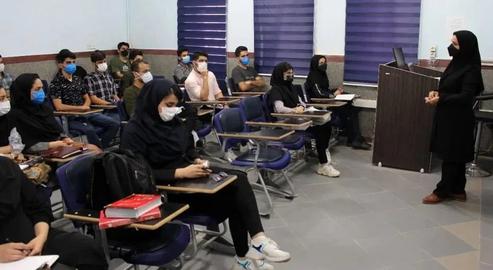

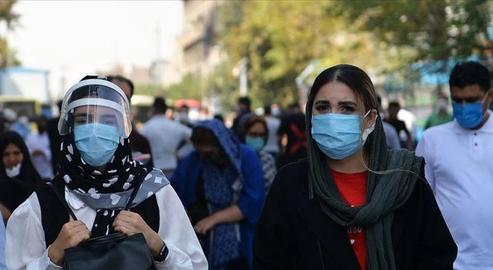
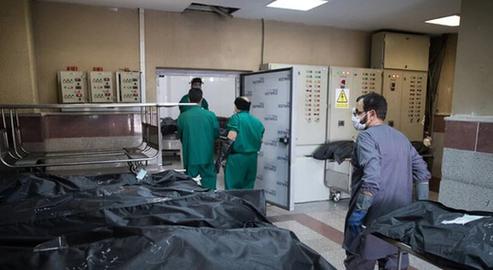

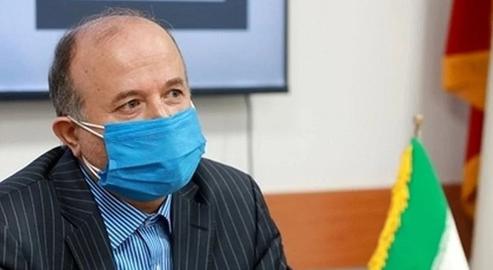
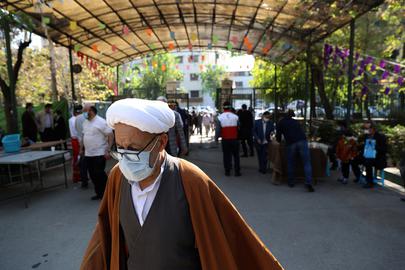

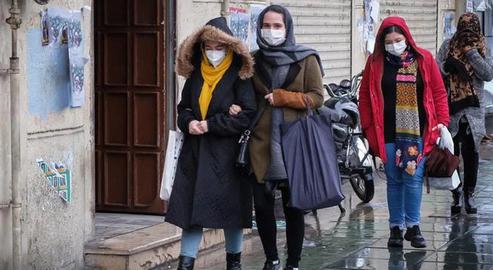

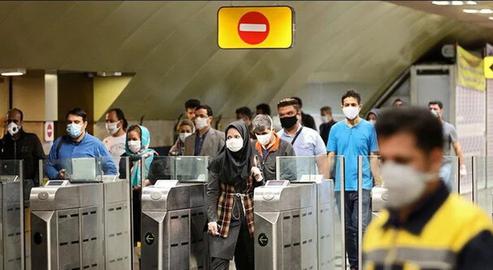
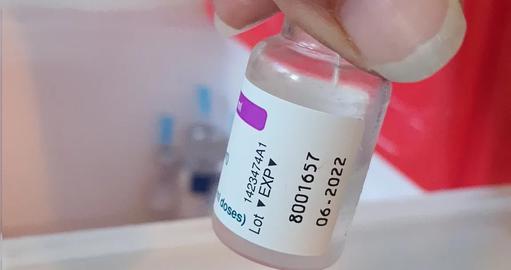

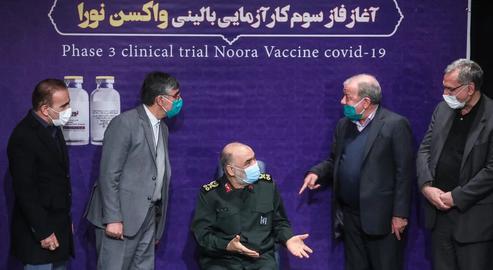
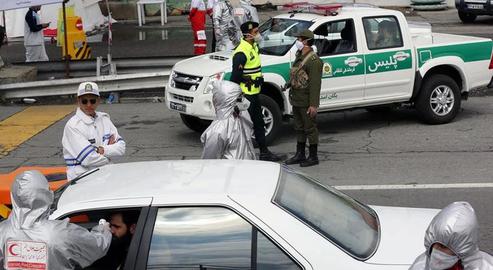

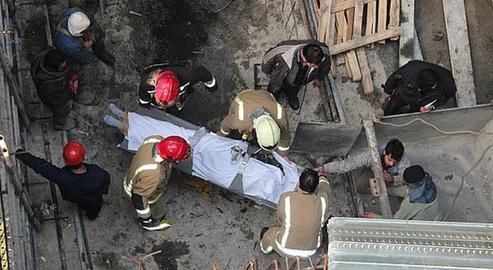
comments